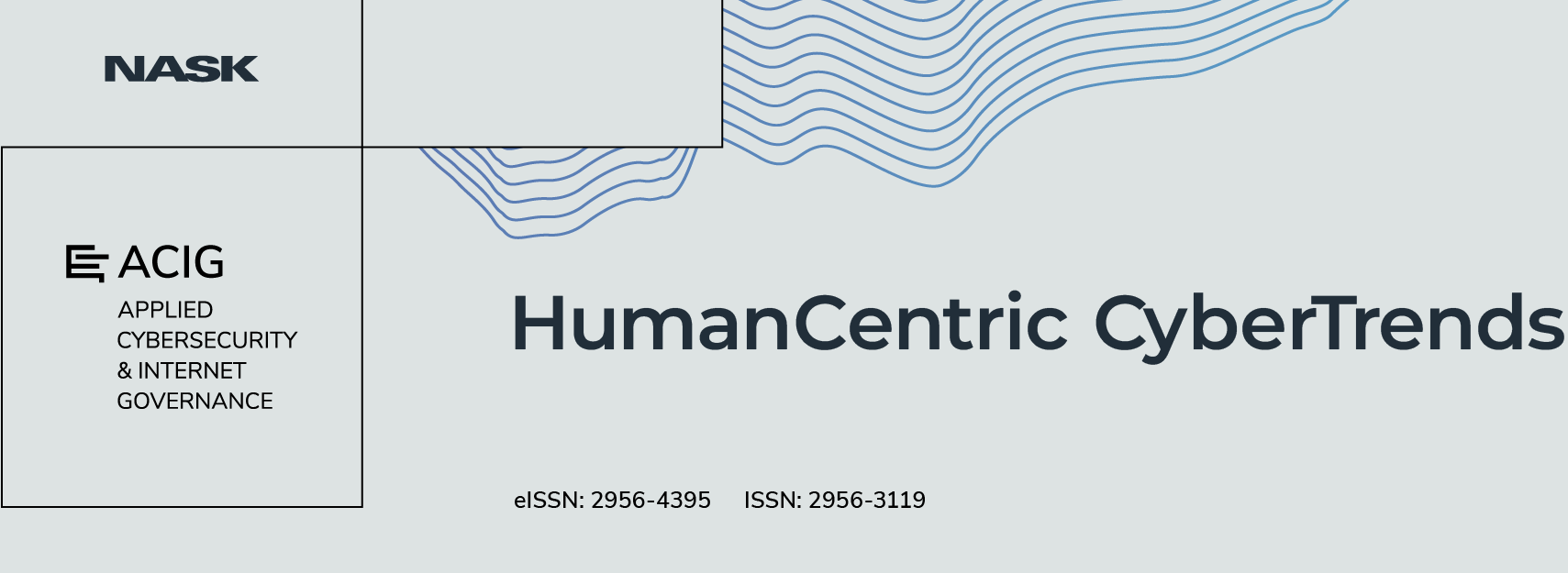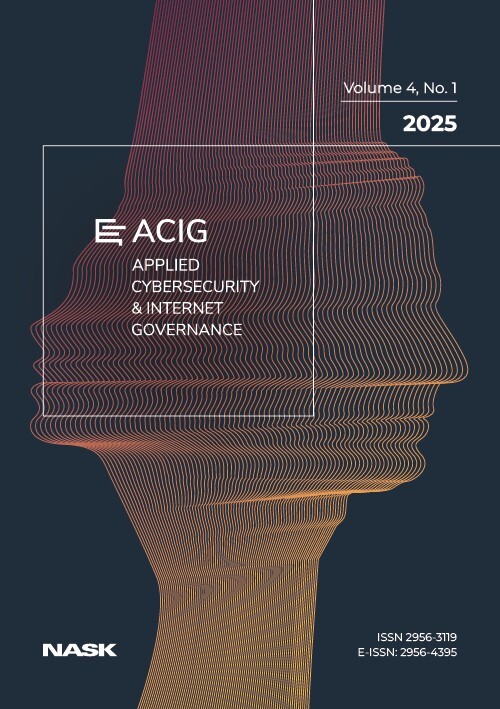For those wishing to find out more. Q&A with Artem Zhylin & Hanna Holych
ACIG editor Marek Górka talks to Artem Zhylin & Hanna Holych from the State Cyber Protection Centre of the State Service of Special Communications and Information Protection of Ukraine
Marek Górka: Cybersecurity is increasingly becoming a field of study in both social sciences and technical areas. What are the benefits of combining these fields for the development of knowledge about cybersecurity?
Artem Zhylin & Hanna Holych: Addressing both the social and technical cybersecurity dimensions offers significant benefits, including a more comprehensive interpretation of cyber threats and their impacts. This interdisciplinary approach enhances our understanding of the complex interplay between the technological aspects and the human factors involved, fostering the implementation of more adaptive security strategies. Additionally, it promotes the creation of policies that consider societal implications, ensuring the development of more resilient and holistic security frameworks and facilitating better cooperation between technical experts and policymakers.
Marek Górka: Cybersecurity is a fascinating topic for many researchers. What are the most common research limitations encountered during analyses related to digital processes and events?
Artem Zhylin & Hanna Holych: Researchers often face limitations in cybersecurity studies due to the rapidly evolving nature of digital threats and the lack of comprehensive publicly available data. The proprietary nature of much cybersecurity information and the ethical considerations surrounding confidentiality and security concerns also pose significant constraints and further complicate research efforts. It is also important to highlight that the interdisciplinary nature of the cybersecurity field often leads to challenges in coordinating activities that require diverse expertise as well as in integrating diverse methodologies and theoretical perspectives. These limitations necessitate ongoing adaptation and innovation in research approaches.
Marek Górka: How does science cope with the dynamically changing landscape of cyber threats?
Artem Zhylin & Hanna Holych: The scientific community responds to the evolving landscape of cyber threats through continuous research, technological innovation and the development of adaptive security frameworks. Collaboration among academic institutions, industry, and government agencies enhances the collective response capabilities and plays a crucial role in staying ahead of emerging threats. Furthermore, advances in artificial intelligence and machine learning particularly help in investigating and predicting new cyber risks.
Marek Górka: What benefits do cybersecurity studies bring in the context of strategic decision-making regarding Ukraine's security?
Artem Zhylin & Hanna Holych: Cybersecurity studies are crucial for strategic decision-making in Ukraine's security context, as they provide critical insights into relevant up-to-date threats. These studies inform the development of robust defensive measures and enhance the country's preparedness and resilience against cyberattacks, safeguarding national security interests. Besides, a perpetually advancing Ukraine`s cybersecurity study framework in a long term perspective contributes to the stability and resilience of critical infrastructure, ensuring the continued operation of essential services.
Marek Górka: Cybersecurity is increasingly becoming a field of study in both social sciences and technical areas. What are the benefits of combining these fields for the development of knowledge about cybersecurity?
Artem Zhylin & Hanna Holych: Addressing both the social and technical cybersecurity dimensions offers significant benefits, including a more comprehensive interpretation of cyber threats and their impacts. This interdisciplinary approach enhances our understanding of the complex interplay between the technological aspects and the human factors involved, fostering the implementation of more adaptive security strategies. Additionally, it promotes the creation of policies that consider societal implications, ensuring the development of more resilient and holistic security frameworks and facilitating better cooperation between technical experts and policymakers.
Marek Górka: Cybersecurity is a fascinating topic for many researchers. What are the most common research limitations encountered during analyses related to digital processes and events?
Artem Zhylin & Hanna Holych: Researchers often face limitations in cybersecurity studies due to the rapidly evolving nature of digital threats and the lack of comprehensive publicly available data. The proprietary nature of much cybersecurity information and the ethical considerations surrounding confidentiality and security concerns also pose significant constraints and further complicate research efforts. It is also important to highlight that the interdisciplinary nature of the cybersecurity field often leads to challenges in coordinating activities that require diverse expertise as well as in integrating diverse methodologies and theoretical perspectives. These limitations necessitate ongoing adaptation and innovation in research approaches.
Marek Górka: How does science cope with the dynamically changing landscape of cyber threats?
Artem Zhylin & Hanna Holych: The scientific community responds to the evolving landscape of cyber threats through continuous research, technological innovation and the development of adaptive security frameworks. Collaboration among academic institutions, industry, and government agencies enhances the collective response capabilities and plays a crucial role in staying ahead of emerging threats. Furthermore, advances in artificial intelligence and machine learning particularly help in investigating and predicting new cyber risks.
Marek Górka: What benefits do cybersecurity studies bring in the context of strategic decision-making regarding Ukraine's security?
Artem Zhylin & Hanna Holych: Cybersecurity studies are crucial for strategic decision-making in Ukraine's security context, as they provide critical insights into relevant up-to-date threats. These studies inform the development of robust defensive measures and enhance the country's preparedness and resilience against cyberattacks, safeguarding national security interests. Besides, a perpetually advancing Ukraine`s cybersecurity study framework in a long term perspective contributes to the stability and resilience of critical infrastructure, ensuring the continued operation of essential services.
We process personal data collected when visiting the website. The function of obtaining information about users and their behavior is carried out by voluntarily entered information in forms and saving cookies in end devices. Data, including cookies, are used to provide services, improve the user experience and to analyze the traffic in accordance with the Privacy policy. Data are also collected and processed by Google Analytics tool (more).
You can change cookies settings in your browser. Restricted use of cookies in the browser configuration may affect some functionalities of the website.
You can change cookies settings in your browser. Restricted use of cookies in the browser configuration may affect some functionalities of the website.


